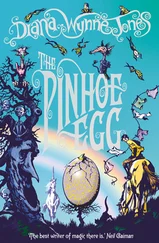‘And then Ana Cavanella came into the palazzo ,’ he said.
‘Indeed. She was our age. That is, near to our age. I’m sure the psychiatrists would have a wonderful time with that: talking about his hidden lusts for us. None of which either of us ever detected.’
‘How did she behave?’
‘I don’t know. That is, I don’t remember. I was at an age when I found life difficult and revolting.’ Then, with a shrug, she added, ‘I suppose I still do to a certain degree,’ and Brunetti realized he was beginning to like her.
‘Does your sister remember?’
‘She was at school. In Ireland. With the sisters.’
‘I see,’ Brunetti said, though he didn’t.
‘And then Ana became pregnant?’ he asked.
‘Yes. And my mother went wild. I’d never seen her like that.’
‘Jealousy?’
She laughed. ‘Hardly. She raged on about the insult to her honour, to her family.’
‘What happened?’
‘Ana left.’
‘And the house and the payments?’
‘My father bought the house in my name. I was nineteen then, and he asked me if I’d do it for him: allow for the usufrutto and allow the payments to go in my name. I signed the papers: he was a good man.’
Brunetti picked up the glass and drank some of the water. He could not reconcile this conservatively dressed and clearly spoken woman with the raving wreck they had met the day before. He had a growing suspicion that this woman had outwitted them, and the victim of deceit had been Griffoni.
‘Why did you think I was here to arrest you, Signora?’
‘Because of what I did to Ana Cavanella.’
‘You mean hitting her?’
‘Is that what she says?’ she asked, unable to hide her surprise.
‘No. Would you tell me what happened?’
‘She came here two days ago, and I let her in. I didn’t recognize her: forty years is a long time. She had to tell me who she was. That’s when I let her in.’
‘What happened?’
‘She told me that her son was dead. And I told her I knew that.
‘She came because she’d received a letter from my lawyer, telling her that the death of her son Davide changed the nature of our existing fiscal relationship. She came to ask me what that meant.’
‘Did you explain it to her?’
With something close to irritation, Lucrezia said, ‘I don’t know why lawyers can’t say things clearly. Just tell her there would be no more money. And she’d have to leave the house.’ She looked across at Brunetti. ‘I tried to explain it to her, but I don’t think she understood. Or didn’t want to. I told her my obligation was to Davide, not to her.’
Curious as he was at her use of the word, ‘obligation’, Brunetti said nothing.
‘She got angry and said the family couldn’t lie about him any more, or about her.’ She followed that with a puff of incredulity and went on. ‘I told her she was nothing to me and told her to leave, but she said Davide was my half-brother and was entitled to a third of my father’s estate.’
She made a shivering motion. ‘She’d read something about the law that was passed last year, and she said there was proof.’
‘Proof of what?’
‘That my father – that is, my mother’s husband – was also Davide’s father. And then when I told her there could be no proof, she said something about what she called DNU. I didn’t understand at first what she was talking about, and then she said it was the proof in the body, in the blood, that people were related.’
‘DNA,’ Brunetti whispered and breathed a silent prayer to be delivered from the hands of the ignorant.
‘Yes. DNA. God knows where she got the information. She didn’t understand anything, but she kept talking about the DNU test and that it would prove he was Davide’s father. I told her to go ahead and try to prove it.’
‘Did you tell her anything else?’
‘No. She wouldn’t stop talking, and then she was shouting. We were still standing at the door. I opened it and told her to get out: we’d been talking in the courtyard all this time. I didn’t want her in the house. She kept shouting that she deserved to be helped, and I told her all she deserved was to be put away in jail or an institution.’ Lucrezia’s emotions overcame her, and she stopped, breathing heavily.
‘I raised my hand to her. It frightened her. I grabbed her shoulders, shoved her out into the calle and slammed the door in her face before she could come back in. Then I went into the house.’ She smiled then, speaking to Brunetti as though he were an old friend. ‘I have to confess I’ve never enjoyed anything so much in my life.’
‘In her face?’
‘I meant it figuratively,’ she said. ‘She stood out there, howling like a hyena. It must have been ten minutes. But then it stopped. She went away.’
She finished her glass of water and placed it behind her on the counter.
‘What did you mean about her belonging in prison or in an institution?’
In that same, easy voice, still speaking to a friend, she said, ‘For what she did to Davide.’
‘What did she do?’
Her eyes widened. ‘You mean you don’t know? I thought everyone in the neighbourhood knew.’
‘I don’t know what you’re talking about, Signora.’
‘Really?’
‘Really.’
‘About the room?’
‘What room?’
‘Oh my God,’ she said, honestly stricken. ‘I swear by my father’s memory I thought you knew, that you’d found out from the people in the neighbourhood.’
‘I don’t know anything, Signora,’ Brunetti said, feeling the profound truth of this.
She leaned forward and put her palms flat on the table, thumbs barely touching, and she looked at them as she spoke. It took her a long time to find the energy to continue speaking. ‘When my father told her she had to leave our home, she refused, and when he said he’d make sure she and the baby were taken care of, all she said was that she’d take care of the baby.’ She stopped, and swallowed twice. Then she pulled out a chair and sat, facing him.
‘We didn’t know what she meant. At first she went and lived in the house, but then she disappeared. Later, she came back to live with her mother. And she got some sort of job, but I think that was only to keep her out of the house.’
‘And the mother?’
‘She helped her.’
‘With what?’
Her hands gave the only indication, beyond her voice, of her emotions. The fingers contracted into fists, and the veins on the back of her hands stood out.
‘They didn’t talk.’
‘What do you mean?’
‘They didn’t talk to the baby. To the boy. He was there. Maybe she even had him there and no one ever knew.
He lived in a room, and they fed him and cleaned him – I suppose. But they didn’t talk to him. That’s what she meant when she said she’d take care of the baby.’
She looked up then. ‘Don’t think she’s crazy, Signore. She’s not. She’s bad. They both were.’
‘How long did this go on?’
‘Years, a decade or more. Then the old woman left or died or disappeared. I don’t know. I was busy making a ruin of my own life: I had no time to pay attention to hers. Theirs.’
‘How did you learn all of this?’
‘Signora Ghezzi. But not until years later.’ Brunetti fabricated a confused shake of his head. ‘My mother’s maid. She had friends in that neighbourhood, and she heard the talk. Nothing certain, only rumours. No one wanted to get involved. No one had the courage to interfere in what she was doing. No one trusted the police.’
She pushed herself to her feet, then sat down again. ‘And one day the old woman was gone and the boy was there, her son, her disabled and retarded son. She told people he had been raised by relatives in the country; even then no one dared to ask questions.’
Читать дальше












